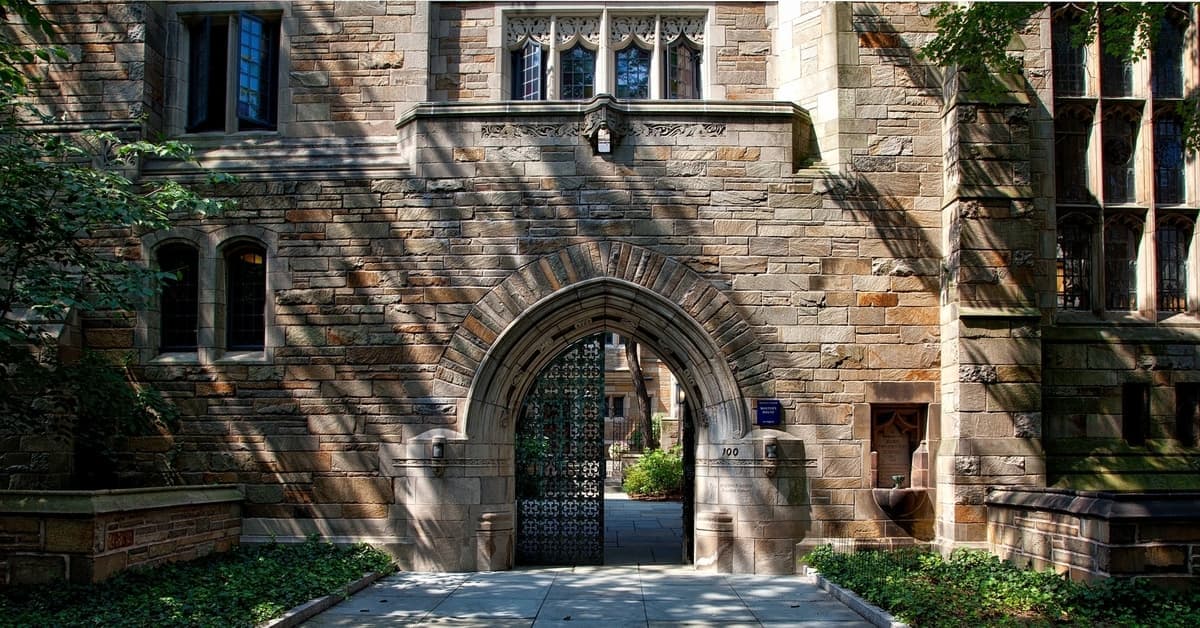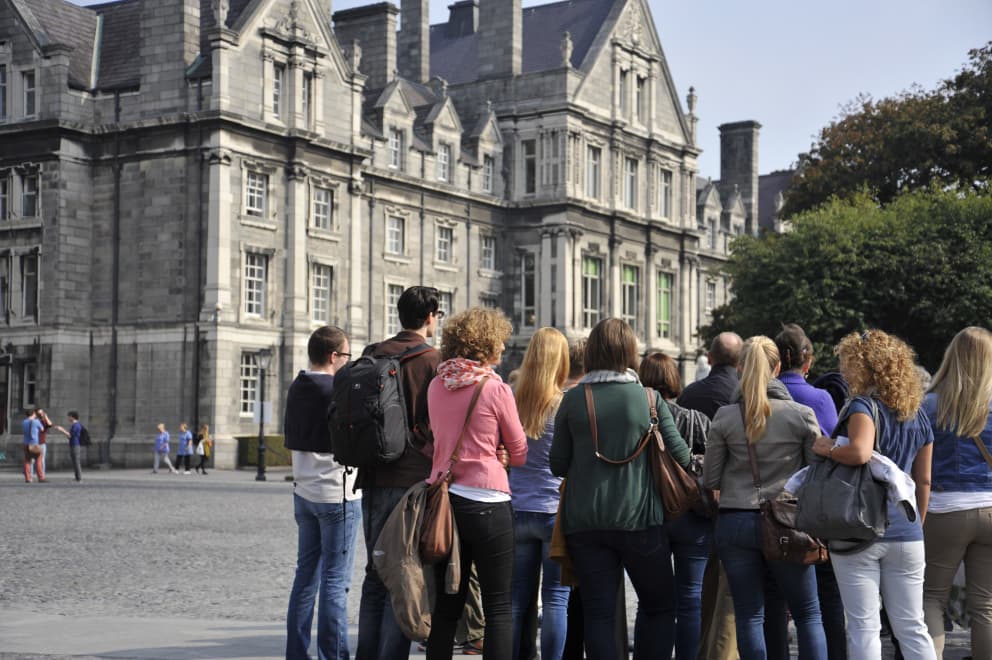How To Get Into an Ivy League School? The Essential Guide

Summary
Getting into one of the Ivy League schools almost seems like a dream. Who really gets that coveted acceptance letter? Well, there’s two things to keep in mind: first, these schools don’t just recruit the “perfect” student — as you may think they do — but second, with so many strong students applying, admissions remains very competitive. The upshot is that there’s no one-size-fits-all approach to Ivy League admissions. While having a solid strategy goes a long way, YOUR strategy should be tailored to your personal passions, personality, motivations, and aspirations. With all this in mind, this blog will go over key application requirements and explain how you can shape your own personalized, holistic, and comprehensive strategy for getting into the Ivy League school of your dreams!
How Hard Is It To Get Into an Ivy League School?
The schools in the Ivy League are notoriously difficult to get into, even more so in the last couple of years. Harvard and Princeton continue to top the list with acceptance rates as low as 3.19%. The Class of 2027 acceptance numbers at all eight Ivies were some of the lowest in history. You can find out your chances of acceptance with our free college admissions calculator!
Ivy League Acceptance Rates Over The Last 8 Years
| Class of: | 2022 | 2023 | 2024 | 2025 | 2026 | 2027 | 2028 | 2029 |
|---|---|---|---|---|---|---|---|---|
| Harvard | 4.6% | 4.5% | 4.9% | 3.4% | 3.2% | 3.4% | 3.6% | N/A |
| Princeton | 5.5% | 5.8% | 5.6% | 4.0% | 5.7% | 4.5% | 4.62% | N/A |
| Yale | 6.3% | 5.9% | 6.5% | 4.6% | 4.5% | 4.35% | 3.7% | 4.6% |
| Columbia | 5.5% | 5.1% | 6.1% | 3.7% | 3.7% | 3.9% | 3.85% | 4.3% |
| UPenn | 8.4% | 7.4% | 8.1% | 5.7% | 6.5% | 5.9% | 5.4% | N/A |
| Brown | 7.2% | 6.6% | 6.9% | 5.4% | 5.0% | 5.1% | 5.2% | 5.7% |
| Dartmouth | 8.7% | 7.9% | 8.8% | 6.2% | 6.4% | 6.2% | 5.3% | 6.0% |
| Cornell | 10.3% | 10.6% | 10.7% | 8.7% | 7.26% | 7.9% | 8.41% | N/A |
Will Applying Early Boost Your Chances of Admission at Ivy League Schools?
Comparing the acceptance rates for Regular Decision and Early Decision/Early Action applicants, applying early does appear to offer significant advantages, assuming it's a suitable strategy for your circumstances. While there's no direct way to measure the advantage an individual applicant gets from applying early, your early application may help you get into an Ivy League school by spotlighting your strong interest for that specific school.
Ivy League universities want to feel special, and one of the only ways to make them feel special is to apply early. If you're sure you want to go to an Ivy League, definitely consider applying early, but keep in mind that Early Decision applications are binding — if you get in, you have to go.
Ivy League Early Round Advantage
| Class of 2028 Regular Decision | Class of 2028 Early Round | Class of 2027 Regular Decision | Class of 2027 Early Round | |
|---|---|---|---|---|
| Harvard | 2.7% | 8.74% | 2.6% | 7.5% |
| Yale | 2.9% | 9.0% | 3.5% | 10.2% |
| Columbia | 2.9% | 12.5% | 3.1% | 11.3% |
| Brown | 3.8% | 14.4% | 3.9% | 13.0% |
| Dartmouth | 3.84% | 17.0% | 4.7% | 19.2% |
Which Ivy League School Is Easiest To Get Into?
While it's debatable which Ivy League is the easiest to get into, comparing acceptance rates of Ivy League Schools is the simplest way to figure this out. According to the table above, Cornell is the easiest Ivy League school to get into — statistically speaking — with the highest acceptance rates for the class of 2028, and is estimated to still have the highest acceptance rates for Class of 2029.
Key Expectations for Ivy League Admissions
The critical components of your Ivy League application include:
- Academic performance (GPA and academic rigor)
- Test scores
- Personal essays
- Extracurriculars
- Recommendation letters
1. Academic Performance
At Ivy League schools having outstanding grades is almost a pre-requisite for admissions. Unless you’ve experienced an extreme illness or a life-changing experience, Ivy League schools expect you to have a good GPA — typically one hovering around 4.0, with many applicants sure to have weighted GPAs exceeding a 4.0.
And, while grades are important, they don’t tell everything about you. Don’t focus so much on grades that you neglect the other pieces of the puzzle, such as the kinds of courses you’re taking…
Academic Rigor: Choose Coursework Wisely
Even when you take a holistic approach to your application, it’s still important to choose courses that challenge you academically and personally. But keep in mind that if your strengths are math and science, you may not be an exceptional English scholar. It’s better to take AP, Honors, or IB courses that showcase and define your passions than struggle through one that lowers your GPA and doesn’t help your overall objective.
Average GPA for Ivy League Schools
| Ivies | Average GPA |
|---|---|
| Brown University | 4.08 |
| Columbia University | 4.16 |
| Cornell University | 4.04 |
| Dartmouth College | 4.06 |
| Harvard University | 4.1 |
| University of Pennsylvania | 3.93 |
| Princeton University | 3.9 |
| Yale University | 4.19 |
2. Test Scores
SAT and ACT scores matter, but not as much as you think. Students who get accepted into Ivy League schools have very high test scores, but most are far from perfect. Only 300-500 students who take the SAT score 1600.
Tip: Submit your SAT/ACT scores even if not required.
Many universities have gone test-optional, meaning you’re not required to submit test scores. While skipping the tests may seem enticing, remember this means the rest of your application needs to shine.
Submitting your test scores is an excellent way to help your application stand out. Moreover, it may turn out that submitting a strong test score, even in a test-optional scenario, may end up giving you an advantage.
Average SAT/ACT Score for Ivy League Schools
| University | Average Composite SAT Score | Average Composite ACT Score |
|---|---|---|
| Brown University | 1515 | 33-35 |
| Columbia University | 1520 | 33-35 |
| Cornell University | 1505 | 32-35 |
| Dartmouth College | 1500 | 32-35 |
| Harvard University | 1530 | 33-35 |
| University of Pennsylvania | 1525 | 33-35 |
| Princeton University | 1515 | 33-35 |
| Yale University | 1530 | 33-35 |
3. Personal Essays
The personal essay is just that — personal. A well-written essay can capture the authenticity of an applicant better than any other part of the Ivy League college application. Students can communicate personal motivations, share more about their passions, showcase leadership qualities, and build trust through a personal essay.
A personal essay also helps admission officers determine if you’re a good fit for their campus community. They want to know that you not only care about your goals but are also capable of furthering the university’s mission.
Tip: Check out our free eBooks on acing your personal essay.
4. Extracurriculars
Strong extracurriculars are critical if you want to get into the Ivy League. Ivy Leagues are not looking for applicants who have participated in dozens of extracurriculars, and they discourage dabbling in many activities. They prefer you dig deep into a subject, dedicate significant time to it, and use this experience to help the school propel you into a world-changing career.
Tip: Find an extracurricular activity that showcases your passion.
Remember, it’s ok if your extracurricular pursuits change later. Show them you’re capable of achieving big things now because what you accomplish now is a good indicator of what you can accomplish in the future, whatever you set your sights on.
Check out the table below for some awesome extracurricular ideas that will stand out in your Ivy League application.
Extracurricular Ideas for Ivy League Schools
| Extracurricular Examples | |
|---|---|
| Science | - Participate in original research at a local college - Compete in the Science Bowl or the Science Olympiad |
| Arts | - Find a national level art competition and rank well - Win speech/debate competitions |
| Writing | - Publish a book - Start a writing club and critique each other’s work |
| Tech | - Create and sell a successful app - Start and successfully run a coding business for young people in your community |
| Athlete | - Be the captain of your sports team - Compete at a national level |
| Business | - Start a club or non-profit and raise awareness using social media or Kickstarter - Raise awareness for an important cause and help people in a quantifiable way |
| Hobbies | - Start a YouTube channel and gain a large following - Mentor others in your hobby |
For more extracurricular ideas, download our free eBook to help you build your extracurricular profile!
5. Letters of Recommendation
Recommendation letters help build your holistic application by allowing influential people in your life to give their personal and professional opinions about your academic performance, character, and drive. If you want to receive favorable and convincing recommendations, establish strong relationships with teachers, key staff, and leaders of your extracurricular activities.
Tip: Ask a school teacher that knows you well for a recommendation letter.
The best way to ask for a recommendation letter is to request in person. Doing so allows your teacher to talk with you about any questions and prepare themselves to write a detailed letter that showcases your strengths in an academic setting.
Read more about how to ask for a recommendation letter for more tips!
What Are Ivy League Schools Looking For in Your Application?
While exceptional credentials don’t hurt candidates, it might come as a surprise that Ivy League universities are not looking for perfect students or even someone who looks perfect on paper. They’re also not looking for students who try to check every box under the sun. The application pile is filled with students who participate in virtually everything but don’t shine at anything.
Ivy League Schools Look For Change Makers
Ivy League schools are looking for people who stick out from the crowd, experts in their area of interest. They're searching for students who have transformed their big dreams into even bigger realities. Ivy League colleges want world-changers who are making positive marks on society with their resources.
World-changers drive change. They know what they want and go for it. They also know success doesn't happen overnight. Ivy League universities like to see growth, even if it means failing before succeeding.
Ivy Leagues are also looking for world-changers who can positively contribute to their university community. They’re looking for humble leaders who will bring accomplishment and recognition to the school and those who are willing to share their knowledge to help fellow students accomplish their goals.
Caution: Be You!
While the Ivy Leagues all share similar entrance objectives, their cultures and learning styles are not the same. Many applicants fail to get into certain Ivy League schools because they try to fit the university’s mold instead of finding one that fits their values and goals.
- Do your research. Which college excites you?
- Does it offer programs and classes that will challenge you and help you grow?
- What’s the campus like?
- Do you prefer a college in a large city or a suburb?
Communicate your answers throughout your application, and your passion for your dream school (or schools) will shine.
Ready To Chart Your Own Ivy League Journey? Here Are Some Top Strategies To Boost Your Odds for Success.
Selection committees review thousands of student applications with high SAT scores, perfect GPAs, and countless AP courses. Even your deep passion for extracurriculars alone won’t get you into an Ivy League school. You have to stand out from the rest. So let’s delve into the three crucial strategies that will help you build a strong Ivy League application:
1. Start Early
2. Map Out a Holistic Approach
3. Submit a Top-Notch Application
1. Start Early
For students who want to get into Ivy League schools, Brice, an admissions strategist at Crimson Education, recommends students start planning and preparing early — when starting high school, or even in middle school.
Why is starting early so important if you want to get into an Ivy League school?
By starting early you’ll get the most out of your high school years, developing college-level skills and academic prowess amid many competing priorities — academic, extracurricular, and more.
Finally, starting early gives you more time to…
- take stock of your interests and goals
- identify top schools aligned with your interests
- research all admissions criteria — both required components and recommended ones
2. Map Out a Holistic Approach to Your College Journey
Having both time and a roadmap for building a strong holistic admissions profile are key for getting into an Ivy League school.
With a solid admissions strategy to guide you, you’ll be a judo master when it comes to tackling the small decisions and life-changing ones along the way — decisions about college prep classes, extracurriculars, how to articulate your core motivations in memorable essays.... You'll take each step with way less stress and much greater clarity.
Ideally, your strategy…
- will be informed by research into target schools
- will amplify your own passions and academic interests
- will help you elevate your extracurricular and academic prowess
Then, when it comes time to apply to an Ivy League school, your application will spotlight your deepest motivations and aspirations and demonstrate why you’re an excellent fit for your target school.
Working with an experienced admissions strategist often pays off as a way to fit all the pieces together into one strong strategy. That said, with or without outside advising, when making your strategy, be sure to consider college prep courses, extracurriculars, test preparation, and how your target school’s offerings and mission fit your own aspirations.
Consider goals like the ones below as you create your personalized college journey roadmap:
- Take challenging courses across a wide range of foundational subjects
- Pursue IB programs or AP courses that align with your strengths and interests
- Maintain, with extra academic support as needed, a strong GPA — the best GPA possible
- Seek opportunities for academic enrichment or acceleration, especially for building knowledge and skills in concentrations most aligned with your interests, passions, or prospective college major — including academic clubs, study abroad, or pre-college summer programs
- Engage in extracurriculars that genuinely excite you to develop and demonstrate leadership, change-making, entrepreneurship, or creativity — these qualities will help you stand out as someone who will make unique contributions to campus life and learning
- Find ways to develop and showcase “soft skills” or “professional skills” like workplace communication, time management, or project management — to highlight your readiness for college and your career motivations
- Set aside time and find resources to prep for your SAT or ACT testing
Want to make sure you keep this journey empowering and fun? Keep an eye to your most genuine motivations for getting into an Ivy League school and ensure your roadmap is tailored to your unique strengths, challenges, passions, and goals.
3. Submit a Top-Notch Application
Essays
- Make sure you understand college essay formats and approaches; use an authentic voice and choose a structure that amplifies your essay themes.
- Be authentic and don't churn out a laundry list of accomplishments, delving instead into deeper introspection, motivations, aspirations, and maybe even some areas of vulnerability...
- Make thoughtful and insightful connections between who you are and the school's offerings, ethos, and the kinds of students they're interested in.
- Get an outside perspective on your essay approach from one or more reviewers with relevant experiences and insights — such as a trusted college graduate or educator, an academic counselor, or better yet a professional admissions counselor with expertise in Ivy League admissions processes.
Supplemental Materials
- Work closely with teachers and counselors when requesting letters of recommendation to ensure they're committed and invested in the process and your goals.
- Know when “optional” materials are relevant for your circumstances and will enhance your overall admissions strategy — such as submitting an optional letter of recommendation to showcase unique accomplishments, qualities, or challenges that shape you.
- Respect all supplemental guidelines, and don't submit materials that fall outside those guidelines.
Test Scores
Submit strong SAT or ACT scores if required, and remember that submitting strong test scores for “test-optional” schools may give you a valuable edge.
Early Application Timelines
Anticipate what will be the best Early Action or Early Decision application strategies for your circumstances and the school or schools you want to apply to — an approach that may boost your chances for admission at Ivies and other highly selective schools. For these decisions, consider getting expert guidance from a Crimson Advisor with a successful track record for admissions to Ivy League schools.
Review Completed Forms and Essays Carefully
Before submitting, be sure to check carefully for omissions, inadvertent errors, misspellings... anything that might detract from the impression your application makes, or give the impression that you’re not as motivated as you say you are!
Getting into Ivy League schools can be an difficult process. Crimson Education offers a range of services in college admissions consulting that can support you throughout your academic journey.
- Maximize your chances of admission by working with our college admissions consultants and get started with a free consultation.
- Learn more about academics, extracurriculars, and admissions by signing up for our events and webinars on the topics that interest you.
- For more insights, review our students' admissions results and learn about our story.


